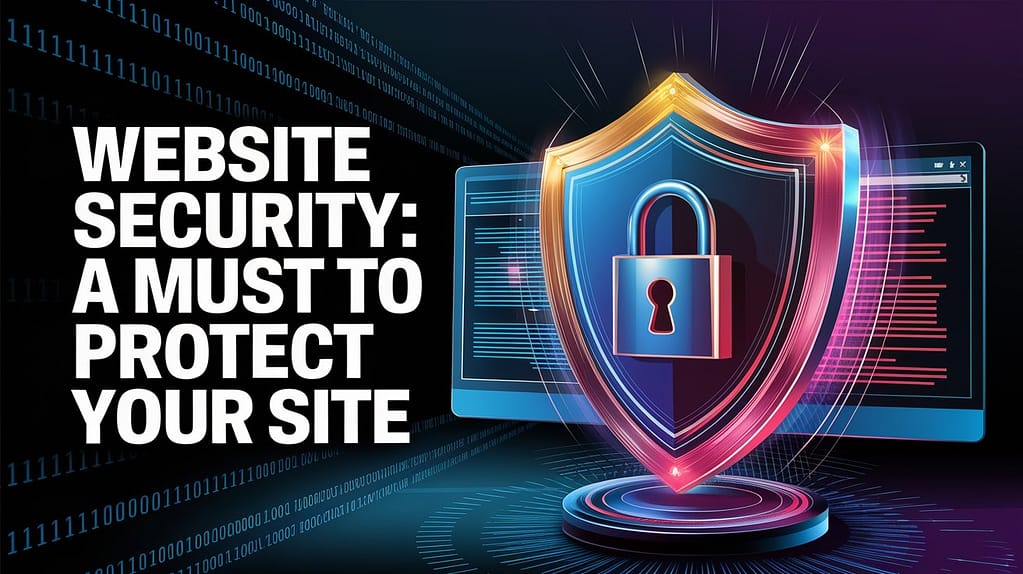
Introduction
Every day, thousands of websites are hacked. Website security is not just a buzzword; it is essential. Imagine waking up to find your site defaced, sensitive data stolen, or your customers’ trust shattered. Sounds scary, right? Securing your website should be a top priority.
Table of Contents
Understanding the Threat Landscape
Common Website Vulnerabilities
Every website has weak points. Outdated software, weak passwords, and unprotected servers are just a few examples. Hackers take advantage of these vulnerabilities to gain unauthorized access.
Types of Cyberattacks
The methods hackers use are diverse and evolving, ranging from phishing and malware to brute-force attacks and SQL injections. Understanding these threats is the first step toward prevention.
Keep Software and Plugins Updated
Importance of Regular Updates
Your website’s software and plugins are like the engine of a car. If you don’t maintain them, they’ll break down. Hackers often target outdated software because it’s an easy win.
Automating Updates
To make life easier, consider enabling automatic updates. Many content management systems (CMS) like WordPress offer this feature.
Use Strong Passwords and Multi-Factor Authentication (MFA)
Tips for Creating Strong Passwords
Avoid common passwords like “123456” or “password.” Instead, opt for a mix of uppercase letters, lowercase letters, numbers, and special characters. When it comes to your online security, using a password manager is a smart move! Not only does it help you create strong, unique passwords effortlessly, but it also securely stores them so you never have to worry about forgetting your login details again. Safeguard your digital life and enjoy peace of mind!
How MFA Adds an Extra Layer of Security
MFA requires users to verify their identity through multiple methods—think of it as a lock and key for your website. Even if someone steals your password, MFA can stop them.
Secure Your Hosting Environment
Choosing a Reliable Hosting Provider
Not all hosting providers are created equal. Opt for providers with strong security measures, such as firewalls and malware protection.
Benefits of Managed Hosting
Managed hosting services take care of updates, backups, and monitoring, so you can focus on running your business.
Install an SSL Certificate
What is SSL?
SSL (Secure Sockets Layer) encrypts data transferred between your website and its users. The little padlock icon next to your URL tells visitors your site is safe.
How SSL Protects Your Website
SSL prevents data theft and ensures secure communication. Plus, search engines favor SSL-secured websites.
Backup Your Website Regularly
Why Backups Are Essential
Think of backups as a safety net. If your website gets hacked or crashes, backups allow you to restore it to its previous state.
Tools for Automated Backups
Tools like UpdraftPlus or BackupBuddy make it easy to schedule regular backups.
Set Up a Web Application Firewall (WAF)
What is a WAF?
A Web Application Firewall acts as a gatekeeper, blocking malicious traffic before it reaches your site.
Benefits of Using a WAF
WAFs can prevent SQL injections, cross-site scripting (XSS), and other common attacks.
Limit User Permissions
Defining Roles and Permissions
Not everyone needs admin access. Assign roles carefully to limit what users can do on your site.
How to Implement the Principle of The Least Privilege
Assign only the minimum permissions required for users to complete their tasks. This is like giving someone a spare key rather than the master key.
Protect Against DDoS Attacks
What are DDoS Attacks?
Distributed Denial of Service (DDoS) attacks flood your site with traffic, making it inaccessible to real users.
Tools to Mitigate DDoS Risks
Services like Cloudflare offer DDoS protection to keep your site running smoothly.
Monitor and Scan for Malware
Tools for Malware Scanning
Use tools like Sucuri or SiteLock to scan your website regularly.
How to Act if Malware is Detected
Isolate the infected files, clean the malware, and update your security measures to prevent recurrence.
Secure Your Database
Best Practices for Database Security
Use strong credentials and limit database access to trusted IPs.
Limiting Database Access
Restrict database access to your web server to reduce the attack surface.
Educate Your Team
Importance of Cybersecurity Training
Your team is your first line of defense. Educate them about phishing, safe browsing, and secure password practices.
Tips for Ongoing Education
Hold regular training sessions and share updates on the latest security trends.
Utilize Content Delivery Networks (CDNs)
What is a CDN?
A CDN stores copies of your website on servers worldwide, improving, speed and security.
How CDNs Improve Security
Content Delivery Networks (CDNs) help distribute traffic and can lessen the impact of DDoS attacks by balancing the load effectively.
Conclusion
Securing your website might feel overwhelming, but it’s worth it. Think of it as locking the doors and windows of your digital home. You’re protecting your data, reputation, and users’ trust. Take action now to secure your site—don’t wait for a hack to happen!
FAQs
What are the first steps after detecting a hack?
Disconnect your site, assess the damage, and consult a cybersecurity expert.
What is the cost of securing a website?
Costs vary, but basic security measures can start as low as $10 per month.
Are free security tools reliable?
Some are, but premium tools often offer better protection and support.
How frequently should I update my website’s security measures?
Regularly! Aim for at least monthly updates or whenever vulnerabilities are discovered.
What is the role of a cybersecurity professional?
They audit, secure, and monitor your website, ensuring robust protection against threats.

